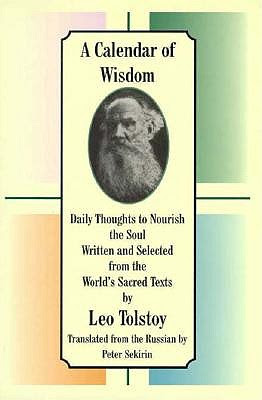Choose Kindness
INSPIRATIONAL, 1 Jan 2024
Maria Popova | The Marginalian – TRANSCEND Media Service
One of the saddest tendencies in our present culture is an indignant intolerance for the basic humanity of being human. People of the past are harshly judged by the standards of the present (which their own difficult lives helped establish), and people of the present are harshly judged by impossible (and hypocritical, in the full context of any judger’s life) standards of uniform perfection across all regions of private and public existence. And yet the eternal test of character — our great moral triumph — is the ability to face our own imperfections with composure, reflecting on them with lucid and luminous determination to do better — an essential form of moral courage all the more difficult, and all the more important, amid a cultural atmosphere that mistakes self-righteousness for morality and suffocates the basic impulse toward betterment with punitive intolerance for human foible.
Luckily for Leo Tolstoy (September 9, 1828–November 20, 1910), and luckily for the generations of humans whose lives have been enriched and ennobled by his contribution to the common record of truth and beauty we call literature, he lived in a very different era. When he was approaching that era’s life-expectancy — which he would come to outlive nearly twofold — Tolstoy began reckoning with his own imperfect life, punctuated by the human inevitability of having acted unwisely and unlovingly in moments too mentally and emotionally threadbare to act otherwise, and set out to find the wisdom he had lacked along the way.
So began his Calendar of Wisdom: Daily Thoughts to Nourish the Soul, Written and Selected from the World’s Sacred Texts (public library) — a compendium of quotations by great thinkers of the past, annotated with Tolstoy’s own thoughts, which he compiled for two decades and published in the final ailing years of his life. (In some deep yet obvious sense, The Marginalian is my own lifelong version of such a compendium, commenced long before I first encountered Tolstoy’s book a decade ago.)
In the entry for January 7 — perhaps prompted by the creaturely severity and the heart-clenching bleakness of a Russian winter, or perhaps by the renewed resolve for moral betterment with which we face each new year — he writes:
The kinder and the more thoughtful a person is, the more kindness he can find in other people.
Kindness enriches our life; with kindness mysterious things become clear, difficult things become easy, and dull things become cheerful.
At the end of the month, in a sentiment Carl Sagan would come to echo in his lovely invitation to meet ignorance with kindness, Tolstoy writes:
You should respond with kindness toward evil done to you, and you will destroy in an evil person that pleasure which he derives from evil.
In the first days of February — the shortest, bleakest month, known in our part of the world as “the Little Ripper” — Tolstoy copies out two kindness-related quotations from Jeremy Bentham and John Ruskin, then reflects:
Kindness is for your soul as health is for your body: you do not notice it when you have it.
[…]
Nothing can make our life, or the lives of other people, more beautiful than perpetual kindness.
_______________________________________
 My name is Maria Popova — a reader, a wonderer, and a lover of reality who makes sense of the world and herself through the essential inner dialogue that is the act of writing. The Marginalian (which bore the unbearable name Brain Pickings for its first 15 years) is my one-woman labor of love, exploring what it means to live a decent, inspired, substantive life of purpose and gladness. Founded in 2006 as a weekly email to seven friends, eventually brought online and now included in the Library of Congress permanent web archive, it is a record of my own becoming as a person — intellectually, creatively, spiritually, poetically — drawn from my extended marginalia on the search for meaning across literature, science, art, philosophy, and the various other tendrils of human thought and feeling. A private inquiry irradiated by the ultimate question, the great quickening of wonderment that binds us all: What is all this? (More…)
My name is Maria Popova — a reader, a wonderer, and a lover of reality who makes sense of the world and herself through the essential inner dialogue that is the act of writing. The Marginalian (which bore the unbearable name Brain Pickings for its first 15 years) is my one-woman labor of love, exploring what it means to live a decent, inspired, substantive life of purpose and gladness. Founded in 2006 as a weekly email to seven friends, eventually brought online and now included in the Library of Congress permanent web archive, it is a record of my own becoming as a person — intellectually, creatively, spiritually, poetically — drawn from my extended marginalia on the search for meaning across literature, science, art, philosophy, and the various other tendrils of human thought and feeling. A private inquiry irradiated by the ultimate question, the great quickening of wonderment that binds us all: What is all this? (More…)
Tags: Humanity, Inspirational, Leo Tolstoy, Philosophy, Spirituality, Wisdom
This article originally appeared on Transcend Media Service (TMS) on 1 Jan 2024.
Anticopyright: Editorials and articles originated on TMS may be freely reprinted, disseminated, translated and used as background material, provided an acknowledgement and link to the source, TMS: Choose Kindness, is included. Thank you.
If you enjoyed this article, please donate to TMS to join the growing list of TMS Supporters.

This work is licensed under a CC BY-NC 4.0 License.